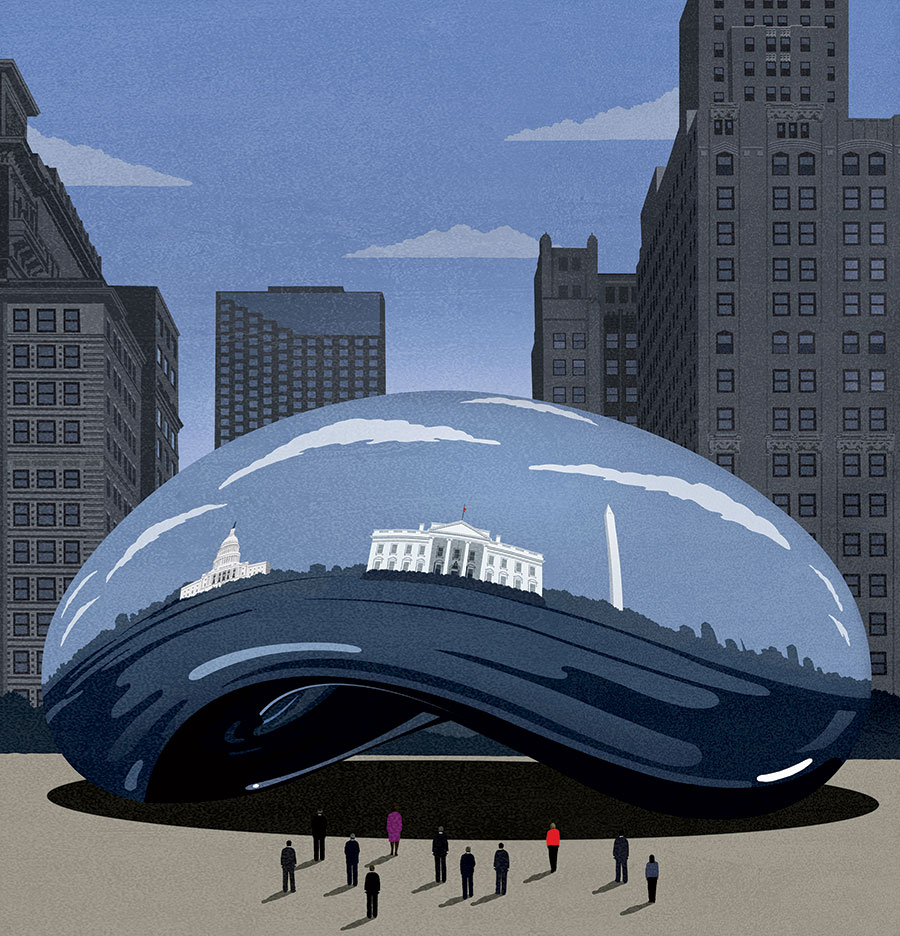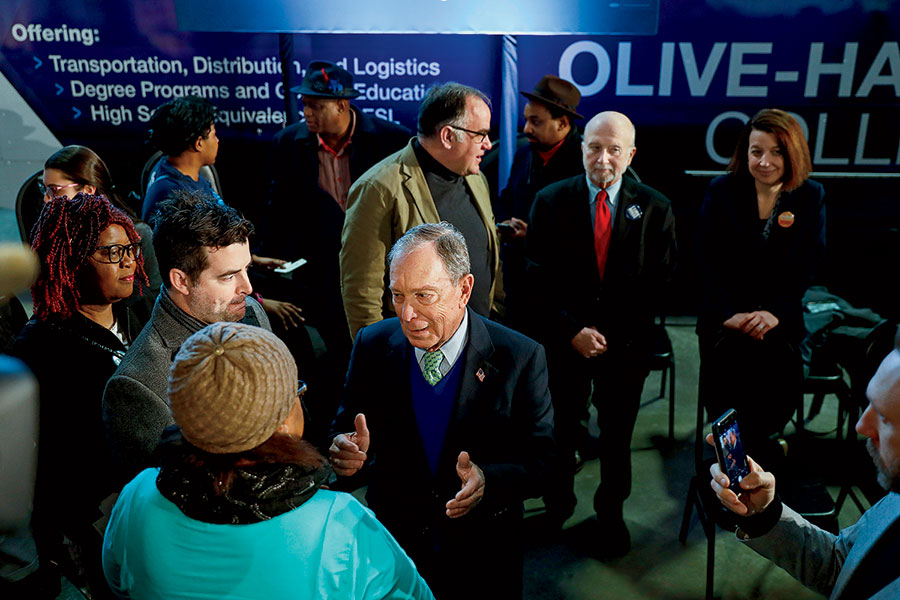
llinois is usually a nonfactor in the presidential primaries. More than half the states vote before us. More than half the delegates have been won. This year, however, things may be different: With such a large field of candidates, the Democratic nomination could very well still be up for grabs come March 17. Our middle-of-the-road state could provide a signal as to which candidate best appeals to the nation as a whole — and it’s conceivable that Illinois could even decide the nominee.
“Illinois is more important this cycle than in any other presidential campaign since 1988, when we had two favorite son candidates, Jesse Jackson and Paul Simon,” says political consultant Kitty Kurth, who has worked for Joe Biden and was affiliated with Marianne Williamson’s campaign this year. “While we don’t vote until after Super Tuesday, I believe that Super Tuesday will not have one clear winner.”
Part of the reasoning for Illinois’s significance is simple math. Despite the mystique of New Hampshire and Iowa (battered as it now is), our state will send nearly twice as many delegates to the Democratic National Convention as those two combined. The other part is demographics. Illinois is Middle America personified: Our ethnic makeup matches the nation’s more closely than any other state’s. In a diverse party like the Democrats, winning here proves a candidate can win anywhere.
“Illinois is a pretty decent reflection of the Democratic electorate,” says Kyle Kondik, managing editor of Sabato’s Crystal Ball, a national political forecaster. “It features sizable black and Hispanic voting blocs, and the state is anchored by the kind of megacity where the party has its greatest strength. It’s easy to imagine Illinois being closely contested.” March 17 may actually wind up being the most critical day of the Democratic presidential primary campaign, and not just because of Illinois. Arizona, Florida, and Ohio also hold their primaries that day, which closes a two-week stretch when most of the delegates will be chosen, beginning with Super Tuesday on March 3.
U.S. representative Robin Kelly, a Democrat from Matteson, has been leveraging Illinois’s status as a microcosm to attract presidential candidates to her congressional district, itself a bellwether that contains portions of Chicago’s South Side, the south suburbs, and rural northern Illinois. In January, Pete Buttigieg held a town hall meeting at Corliss High School in Pullman. The former South Bend, Indiana, mayor, who has been criticized for his inability to connect with black voters, talked to a racially mixed audience about education, health care, and gun control. Kelly has also extended invitations to Amy Klobuchar, Elizabeth Warren, Deval Patrick, and Joe Biden. Michael Bloomberg’s first Illinois event, a rally at Olive-Harvey College, took place in Kelly’s district. Now she wants to invite him back for a question-and-answer session.
“Most of them have come to Illinois, but most have come for fundraisers,” says Kelly. “I am trying to get as many of the candidates as I can to the south suburbs and the South Side of Chicago. They shouldn’t take any state for granted. We have a lot of blue, but we also have some red, such as Kankakee County.”

That’s a fact not lost on Bloomberg, who has questioned the value of focusing on Iowa and New Hampshire, two homogenous rural states that won’t play significant roles in the general election — especially while Donald Trump is holding rallies all across the country. Bloomberg, who was a liberal Republican mayor of New York City and has since been spending chunks of his $54 billion fortune to support gun control organizations, probably has a better chance in an urban state where more people share his values. He’s opened 10 campaign offices around Illinois and hired 100 staffers — more than any other candidate. Between late November, when he announced his candidacy, and mid-January, he dropped $4.4 million on TV ads here.
“We’re fortunate to have a national campaign,” says Tim O’Brien, a senior adviser to Bloomberg’s campaign, which was sending volunteers door to door in Chicago while the other candidates were attending pancake breakfasts in Sioux City. “We obviously think Illinois is a very pivotal state for us. It is a very significant delegate state, and a state with 20 electoral votes. It can’t be ignored.”
Illinois’s middle-of-the-roadness may make it especially crucial if the race comes down to a two-candidate battle between a progressive and a moderate by the time its primary comes around. In presidential primaries, Illinois prefers establishment figures and all but one time since 1976 has voted for the eventual nominee. The exception was in 1988, when our own senator Paul Simon won Illinois. (His sole victory.)
Paul Lisnek, political analyst for WGN-TV, thinks the state could put a just-left-of-center candidate on the path to the nomination: “Illinois, while it’s a blue state, it’s also a sort of reasonable, moderate state. If you look at the electorate as a whole, a moderate is more likely to win. If this state stands for the moderate, you can be sure the country is, or at least the Democrats are.” That would favor a candidate such as Biden (who in a November poll was leading the state, at 23 percent), Buttigieg, or even Bloomberg over Warren or Sanders. It seems the old question “Will it play in Peoria?” applies to politicians too.


